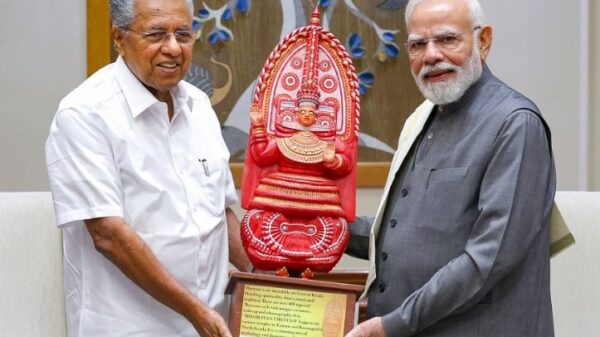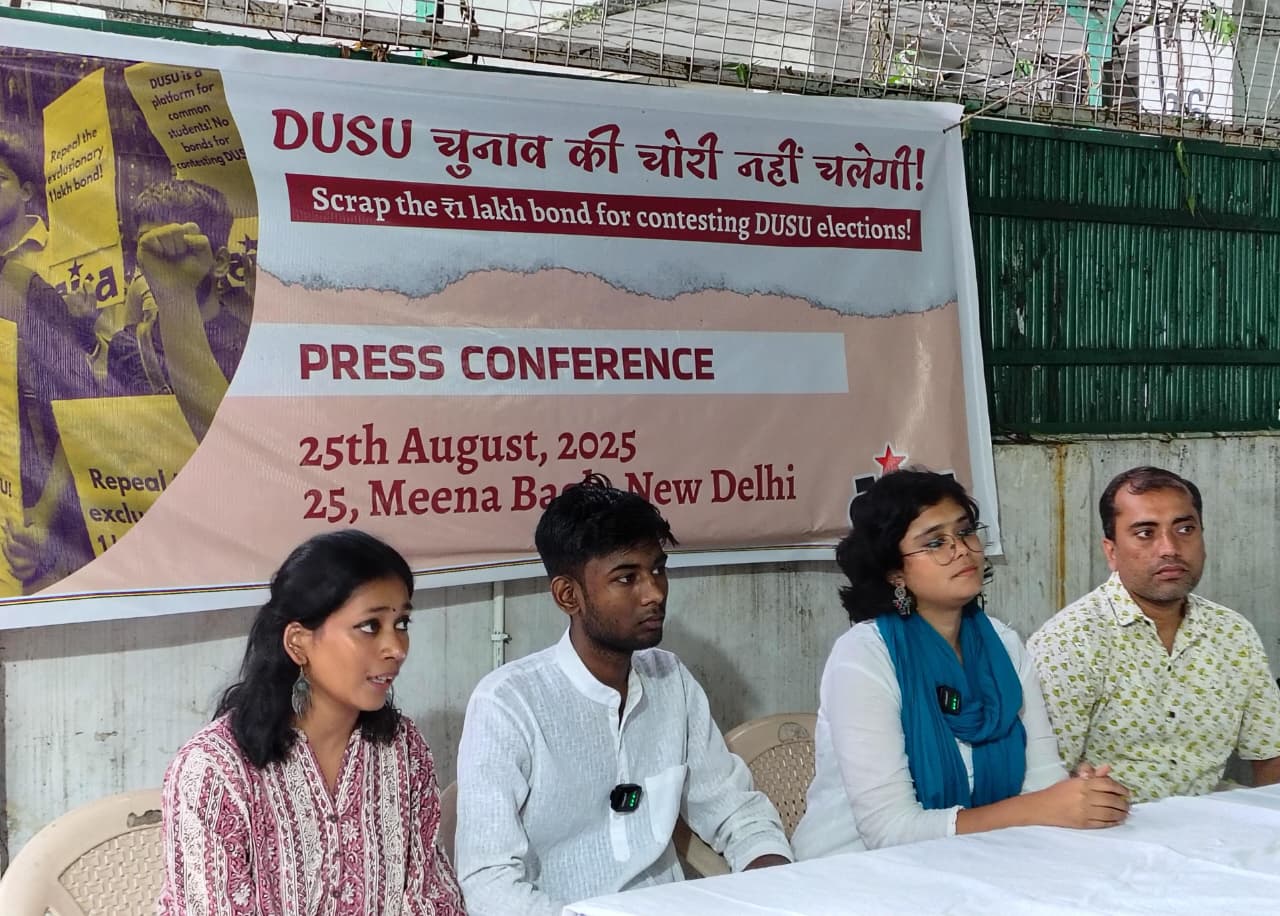On August 25, the All India Students’ Association (AISA), Delhi University, announced at a press conference in Meena Bagh that it has filed a petition in the Delhi High Court challenging the new rule that requires Delhi University Students’ Union (DUSU) candidates to submit a ₹1 lakh bond to file their nominations. The matter has been listed for hearing on Tuesday. AISA said they hope the court will intervene to protect inclusiveness and fairness in student politics.
Speaking at the press conference, Anjali, an AISA activist, said, “In this regime, the attack on student unions is not new. From one university to another we have seen systematic attempts to silence democratic spaces. Today, Delhi University has also taken an undemocratic step, hiding behind the language of curbing money and muscle power, while in reality imposing conditions that alienate and exclude vast sections of students.
As a woman from a village in Gaya, Bihar, I know firsthand how exclusionary such measures are. If contesting elections requires a one-lakh bond, then voices like mine and those of thousands from middle class backgrounds are pushed out before the process even begins. On the one hand, the Delhi High Court has advised the implementation of 50% reservation for women in DUSU, and on the other hand, the University itself is erecting barriers that directly violate that spirit by denying women and marginalized students the space to participate.”
Abhishek Kumar, a Hindu College student and AISA activist, also spoke about how the clause discriminates against students from modest backgrounds. “My father came to Delhi from Bihar in 2002 as a labourer and by his spirit he entered the CRPF. When I come to the University with this background, I see the need to fight for accessibility and social justice in this University. The spirit of DUSU or any student union must entail full freedom of expression not bound by your bank balance,” he said.
The petition argues that the bond clause violates the Lyngdoh Committee recommendations, which emphasize accessibility and minimal expenditure in student elections. AISA pointed out that the rule has no legal basis under the Delhi University Act or the DUSU Constitution.
According to the petition, the rule discriminates against students based on financial status and benefits only wealthy candidates. AISA added that the rule does little to curb defacement, since parties like ABVP and NSUI — who were responsible for much of last year’s poster defacement — can still easily afford to risk a lakh rupees, unlike common students.
The Delhi High Court will hear the case on Tuesday. AISA said they hope the court will act as “a custodian of democracy and students’ voice.”




























































